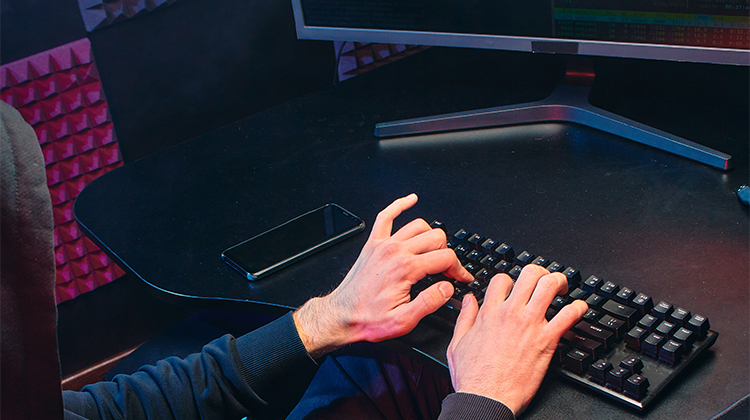What are the Cyber Security Dangers for Primary School Kids?

Children are increasingly using technology for entertainment, learning, exploring new interests and communicating with their friends and family – sometimes through gaming. As technology progresses, they will further expand their online experience, and whilst they broaden their learning, they open themselves up to increasing vulnerabilities.
Some of the Facts and Challenges
While many social media apps and platforms aren’t designed for children under 13 years, recent reports reveal that there are more minors using social media than ever before. YouTube is the most popular, with 80% of kids aged 8 to 12 using it regularly, and just under half of the kids surveyed understand the importance of blocking people, using privacy settings, and turning their locations off.
The 2021-22 Safer Kids Online survey, conducted with 2,383 kids aged between 6 and 13 years, measured kids’ cyber wellness, online behaviour and understanding of cyber risks, and their perception of the social media and gaming landscape.
Some 28% of the kids surveyed had experienced someone being nasty or hurtful toward them online, but 21% couldn’t discern, or understand if they had been confronted or bullied either way.
Some other key statistics identified were:
- Around 84% of children between 6 to 13 years old said they know what to do to avoid cyber risks.
- Almost 50% thought the internet was more dangerous now than before the pandemic.
- Close to 85% recommended seeking advice from a parent or responsible adult when being approached by strangers online.
- 54% were very worried about ‘getting hacked or getting a virus on my device.
- And speaking of devices; the top device used for this age group was a tablet at 70%, with computer or laptop second.
It’s great that kids in Australia are able to deal with cyber risks confidently, but there are still concerns. Increased engagement in gaming and social media broadens their exposure to cyber risks such as sharing personal information unintentionally, aggression and trolls, hate speech, cyber grooming, inappropriate content, phishing schemes, scams or accidentally downloading malware.
More can be done to keep our younger kids safe, while learning to navigate the internet and cyber landscape effectively.
The Educator’s Role in Cyber Safety and Creating Great Global Citizens
Schools and teachers have a fundamental duty of care in most cases to ensure their students are free from any harm, which includes the online world. While each Australian state has their own framework for what that looks like, there are simple ways that teachers can be confident they are doing what they can.
Teachers are in the unique position of being able to impress the lessons of cyber safety on their young charges, supported by parents and families, through daily learning interactions, to give kids great foundations for the best online behaviour now and in the future.
These are some cyber security strategies:
- Update your own awareness and skills through free cybersecurity training, and keep informed about changes to the landscape and risks.
- Be vigilant and keep an eye out for changing behaviour and device use.
- Engage in open discussions, and Q&A sessions, to foster trust so they come to you if they are met with anything amiss.
- Structure cyber safety learning into lessons – it could be through role play, via online gaming or educational videos.
- Stress kindness in the online world, just as in the physical one.
- Explain if they are unsure to pause and report.
- Teach them how to screenshot their devices (if their parents haven’t).
As we finally get back to some normality in the classroom and schools, it’s important to realise that with lockdowns and homeschooling through the pandemic, our kids are likely a little more versed in cyber safety, but with increased use, also comes increased vulnerability.
As the trusted adults outside of their parents and family, it’s also important to know that it’s impossible to avoid all the risks, including cyberbullying behaviour, regardless of the security measures in place.
Our kids naturally look to parents and teachers for advice and best online practices, but ESET encourages teachers to gain parent buy-in before they implement anything in support of keeping their students cyber-safe.
Kelly Johnson is the Australia Country Manager of ESET, one of Europe’s pioneering cybersecurity companies. She has 30 years of experience in the IT industry, having managed teams from sales, marketing, procurement and operations and has worked in the ANZ market for over 12 years with all segments of the ANZ channel.
Image by Mikhail Nilov